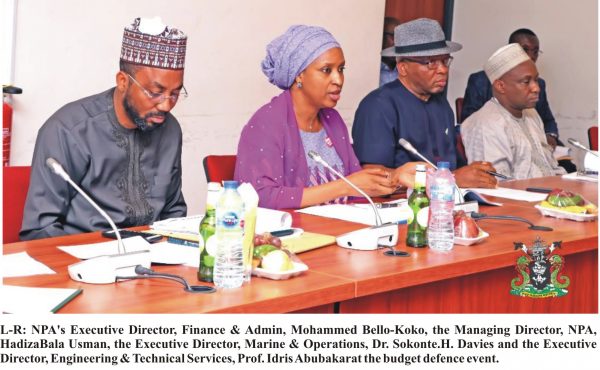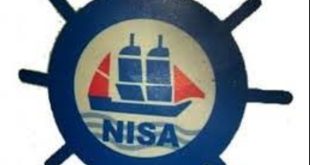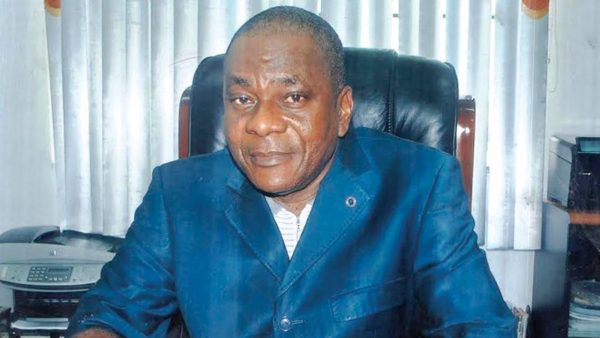 · Nigeria Must Amend AfCTA To Meet Local Interest – MAN
· Nigeria Must Amend AfCTA To Meet Local Interest – MAN
· Why Eastern ports have become obsolete – NPA
By Kenneth Jukpor
Despite the well-publicized fears by the Manufacturers Association of Nigeria (MAN) that Nigeria could become the dumping ground for products in the region with the African Continental Free Trade Agreement (AfCTA), there are indications that the country could harness its youthful productive resource to become the economic power in Africa with the treaty.
Experts have posited that the country could witness an influx of investment opportunities as a result of the treaty as the development could create value and jobs that would see the country develop its economy rather than stifle it.

Recall that the United States of America (USA) started developing the Chinese economy as a result of the relocation of its production companies to China to maximize the opportunity of cheap labour, the development led to the growth of the local industries in China, while the youths gained employment which accounted for more economic gains and improved Gross Domestic Product (GDP) over the years.
It was this massive boost in the Chinese economy that has led the US under President Donald Trump’s leadership to begin a Trade War by increasing tax on Chinese-produced imports to 25% as part of efforts to get back at the Chinese government.
AfCTA, which has been estimated to boost intra-African trade by 52 percent by 2022 by the United Nations Economic Commission for Africa, was scheduled come into effect when 22 of the signing countries ratify the agreement and this feat was achieved last month when Gambia became the 22nd country to ratify it.
In spite of the fears of MAN that the AfCTA may lead to economic losses and cripple indigenous manufacturers, finance experts argue that the treaty would usher in competition which would see indigenous players step up in order to meet the level of their competitors.
Meanwhile, as part of efforts to correct what it describes as Nigeria’s economic disadvantage in the AfCTA, MAN has admonished the Federal Government to explore options to make input that would protect indigenous producers before signing.
The Director General of MAN, Mr. Segun Ajayi stated this during an exclusive chat with MMS Plus last week, noting that MAN had always insisted that the nation should only sign on to an AfCTA that is beneficial to the productive sector, especially the manufacturing sector.
“On the AfCTA, MAN’s position has always been very clear; MAN has always insisted that we need to be fully conscious of what we are getting into especially the rule of origin. As a country we need to take a position that would strengthen our economy and our market. There may be need for us to renegotiate some of the terms or ask for certain arrangement that is beneficial and realistic. We should be able to make such prepositions”, he said.
The MAN Director General stressed that the Association doesn’t want the Nigerian market to become a dumping ground as a result of the continental treaty.
He said that MAN had done a country specific study to show how the Nigerian economy would be impacted and how the nation could mitigate the possible negative aspects of the implementation.
“In essence, how we are going to mitigate the circumstance constraints that we have in Nigeria. We have highlighted what the government needs to do to help the survival of our industries. This means that we should have a market access that promotes Nigeria’s industrial development and its aspirations. These are the concerns we raised” he said.
Following observations that trade facilitation has been central to the growth and development of many thriving economies around the world; AfCTA has been tipped to enhance the grossly under-exploited trade in Africa, whose population of over 1.2billion has combined GDP of $2 trillion.
The MAN Director General had expressed optimism that the country had nothing to lose in the delay on signing because if the nation decides to sign, it can easily assent to it but Nigeria had to be certain that it was signing a document that would be beneficial to the nation.
“The Federal Government set up a committee to look at this issue and I believe that the assignment must have been completed and we are looking forward to what the outcome is. We expect that the government would take a holistic look at it” he added.
The objectives of the AfCTA include; to create a single continental market for goods and services, with free movement of business persons and investments, and thus pave the way for accelerating the establishment of the Continental Customs Union and the African customs union, expand intra-African trade through better harmonization and coordination of trade liberalization and facilitation regimes and instruments across Africa.
Other goals are; to resolve the challenges of multiple and overlapping memberships and expedite the regional and continental integration processes and enhance competitiveness at the industry and enterprise level through exploiting opportunities for scale production, continental market access and better reallocation of resources.
However, the Nigerian government has been admonished to improve facilities such as electricity, good road and rail networks, and guarantee business friendly policies that would empower indigenous manufacturers thrive under the current globalization where no country is an Island.
The policy encourages investment in countries within the sub-region. The essence is to ensure that investors within the sub-region enjoys certain incentives and addressing issues such as tariffs, tax, acquisition of land, protection of intellectual property rights within the sub-region. Other issues include the free movement of goods and persons across the sub-region and infrastructural development.
· Why Eastern ports have become obsolete – NPA
Despite wide arguments that the jettisoning of the seaports in the Eastern part of the country has been a problem initiated by political forces, the Nigerian Ports Authority (NPA) has attributed the failures of these ports to the shallow draft, mostly 10 meters.
The Authority lamented that as at the time the ports were developed the conventional ships were around 10meters but the shipping business had transformed leaving such seaports obsolete by virtue of their draft.
The General Manager, Security at NPA, Capt. Ihenacho Ebubeogu who made this claim during a recent strategic meeting organized by the Nigerian Chamber of Shipping (NCS), also noted that other factors such as piracy led to the jettisoning of Eastern ports.
“The maximum of 10 meters is what the Eastern ports can take. This is because when you are dredging you are fighting nature and in the Niger Delta region you can’t fight nature over long distances. So, you can’t advocate more than 10 meters”
“You should also note that we are serving cargo owners and ship owners. The ships that are built today are far above 10 meter draft. All these factors are what have led the Eastern ports to be jettisoned. It is good to dredge the Eastern ports but let us not lose sight of the need for deep seaports because ship-owners and our customers are using bigger ships that cannot patronize 10 meter draft ports” he said.
The NPA General Manager recalled his time in the Nigerian National Shipping Line (NNSL), “you came into Lagos with ships with 9.5 or 10 meters draft and we puff our shoulders because we came with huge cargo but today ships come with 13.5 meters draft and it is like they haven’t brought anything because things are changing”.
He stressed that the initial design when these ports were built was between 10m and 13m under the then Head of State General Yakubu Gowon.
“There was a time years back that we used Sealion to dredge Tin Can Island Ports but the key aprons all collapsed. It’s like a building designed to be three-storey building is expanded to become five or six storey because more people are looking for houses, it would definitely collapse” he added.
 MMS PLUS NG – Maritime, Aviation, Business, Oil and Gas News Online Newspaper with coverage in Maritime, Oil and Gas, Aviation, Power and Energy as well as Financial News
MMS PLUS NG – Maritime, Aviation, Business, Oil and Gas News Online Newspaper with coverage in Maritime, Oil and Gas, Aviation, Power and Energy as well as Financial News









